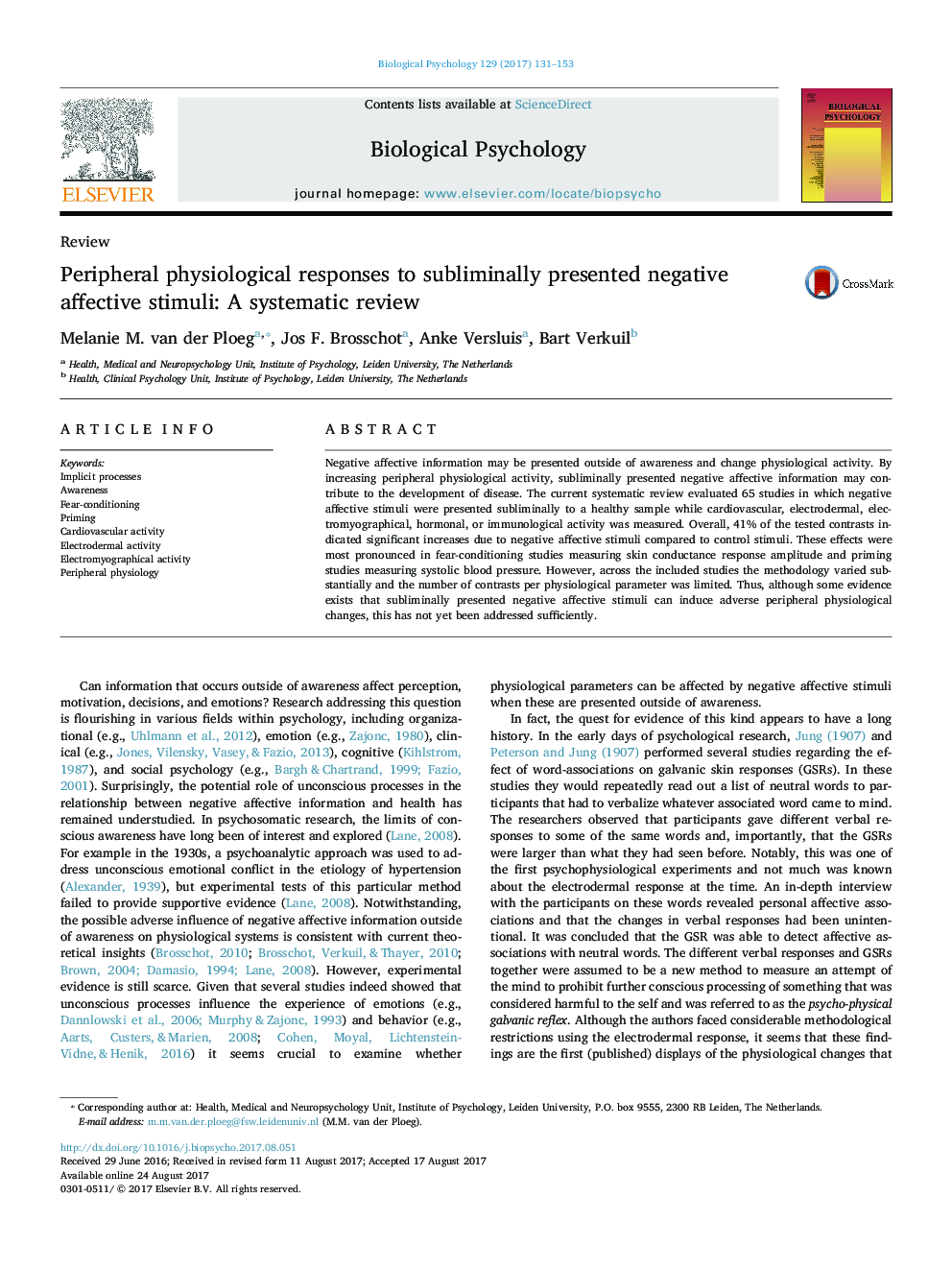| Article ID | Journal | Published Year | Pages | File Type |
|---|---|---|---|---|
| 5040349 | Biological Psychology | 2017 | 23 Pages |
â¢Subliminal negative affective stimuli may affect peripheral physiological parameters of health.â¢We reviewed 65 studies testing cardiovascular, electrodermal, and electromyographical effects.â¢Methodology in fear-conditioning and priming differs greatly across studies.â¢Systolic blood pressure and skin conductance response amplitude are mainly affected.
Negative affective information may be presented outside of awareness and change physiological activity. By increasing peripheral physiological activity, subliminally presented negative affective information may contribute to the development of disease. The current systematic review evaluated 65 studies in which negative affective stimuli were presented subliminally to a healthy sample while cardiovascular, electrodermal, electromyographical, hormonal, or immunological activity was measured. Overall, 41% of the tested contrasts indicated significant increases due to negative affective stimuli compared to control stimuli. These effects were most pronounced in fear-conditioning studies measuring skin conductance response amplitude and priming studies measuring systolic blood pressure. However, across the included studies the methodology varied substantially and the number of contrasts per physiological parameter was limited. Thus, although some evidence exists that subliminally presented negative affective stimuli can induce adverse peripheral physiological changes, this has not yet been addressed sufficiently.
